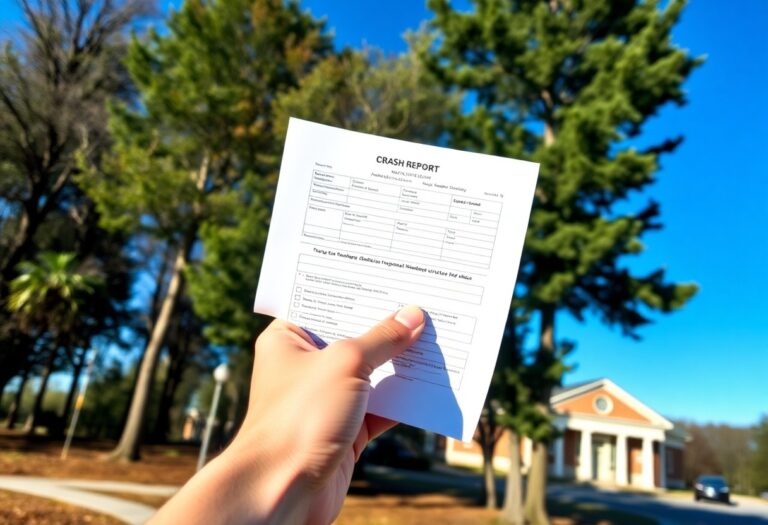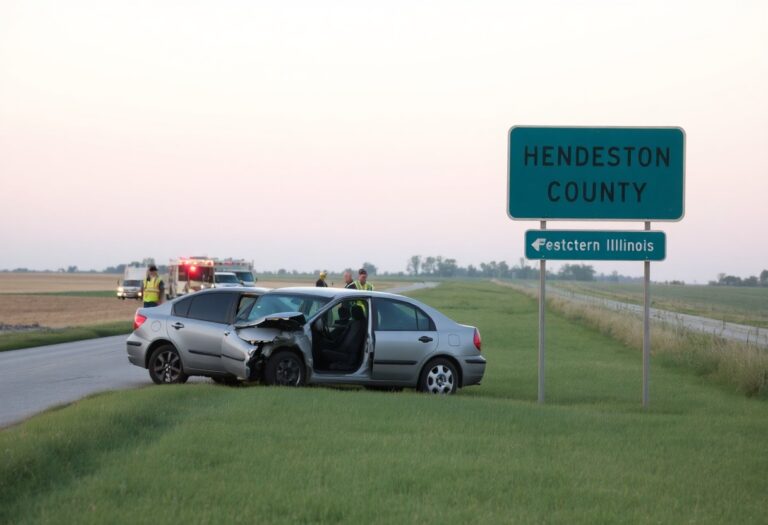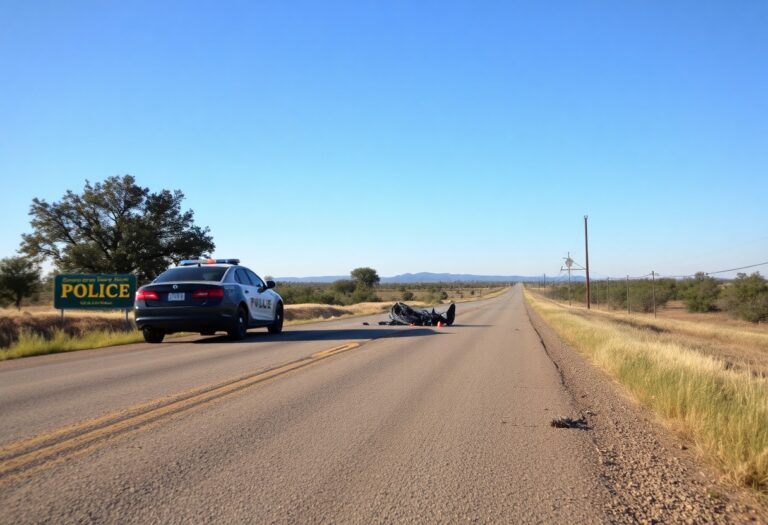There’s a lot you need to know about obtaining crash reports in St. Joseph County, Michigan. If you find yourself involved in an accident, securing your crash report can be necessary for insurance claims, legal matters, or personal records. Fortunately, you have access to various resources designed to assist you in this process. Understanding where and how to request these reports can save you time and ensure that you have the necessary documentation when you need it most. Dive into this guide to learn the steps you should take.
Navigating the Crash Report Process in St. Joseph County
Obtaining a crash report in St. Joseph County involves a few crucial steps. Familiarizing yourself with the process can simplify everything from filing your request to receiving your report. Being aware of where to go, what to submit, and the expected timelines will ensure you have all the information at hand when you need it.
Step-by-Step Guide to Obtaining Reports
| Step | Description |
|---|---|
| 1 | Visit the St. Joseph County Sheriff’s Office website. |
| 2 | Complete the crash report request form. |
| 3 | Pay any associated fees, if applicable. |
| 4 | Submit your request via email or in person. |
| 5 | Wait for processing (usually within a few business days). |
Understanding the Required Information
To secure your crash report, specific details are necessary for the request to be processed efficiently. Providing accurate information such as the date of the crash, location, and involved parties will expedite your application. Additionally, having your driver’s license number or insurance details handy strengthens your request, reducing the chances of delays or complications.
Required information typically includes the date and location of the incident. Furthermore, you may need to specify the type of report you are requesting, indicating if it’s a crash report or another type of document. If you share your driver’s license number, the processing authorities can quickly match your request to their records. The clearer you are in your request, the swifter the retrieval process will be, saving you time and potential frustration.
Municipal and County Resources for Drivers
Utilizing local municipal and county resources can simplify obtaining crash reports for drivers in St. Joseph County. Various offices provide necessary services, including guidance on filing reports and accessing recorded documentation. Knowing where to start can make the process more efficient and less daunting.
Key Offices and Their Roles
The St. Joseph County Sheriff’s Department plays a pivotal role in crash report retrieval, as they manage record-keeping for incidents that occur in unincorporated areas. Local police departments also contribute to this by maintaining records for their respective jurisdictions. Understanding which office to contact based on your crash location ensures that you approach the right authority for timely assistance.
Online Platforms and Contact Information
Drivers can take advantage of online resources to streamline their search for crash reports. The St. Joseph County Sheriff’s Department maintains a user-friendly website where you can find contact information and potential links for digital records. Additionally, each local police department may have its own online platform with specific resources for accessing crash reports.
The availability of online platforms simplifies the process substantially, allowing you to search for and request crash reports without needing to visit offices in person. For the Sheriff’s Department, you can access their website at [www.sjcsheriff.org](http://www.sjcsheriff.org) and utilize the contact information listed to get in touch via phone or email. Local police departments often include their crash report protocols and submission forms online, saving you valuable time and effort. Ensure you have relevant details such as the date of the incident and involved parties ready for a quicker resolution to your request.
Common Challenges When Requesting Crash Reports
Obtaining crash reports can often pose multiple challenges that can delay the process significantly. These can range from lengthy wait times and bureaucratic hurdles to issues related to eligibility and the correct filing of requests. Staying informed about these challenges can make the process smoother for you, allowing you to secure the needed reports and continue with your claims or investigations without unnecessary delays.
Misconceptions About Accessibility
Many people believe that crash reports are readily available to anyone who asks. However, this is not always the case. Access to these reports can be restricted based on your relationship to the incident or the type of request. For example, if you are not directly involved in the crash, you may face more stringent requirements or even outright denial of access.
Tips for Overcoming Obstacles
To navigate the obstacles in requesting crash reports effectively, you should prepare in advance and follow specific steps. Ensure you have all necessary documentation on hand, including your identification and details pertaining to the crash. If you face a denial, don’t hesitate to ask for clarity on why and what you can do to meet the requirements. Being persistent yet polite can often yield better results.
- Gather your identification and all relevant crash details.
- Contact the appropriate authorities directly for guidance.
- Request clarification if your initial requests are denied.
- Follow up regularly with the reporting agency for updates.
- Stay persistent but polite during your interactions.
By following these tips, you can alleviate many of the potential roadblocks in obtaining crash reports. Communication plays a vital role, so keep lines open with the relevant authorities. Be aware that processing times may vary; hence, it’s wise to start this process sooner rather than later. Any additional efforts you make to ensure your request is properly filled out will help expedite results.
- Utilize online resources for guidelines and forms.
- Stay organized to keep track of submitted requests.
- Consider seeking help from a legal professional if complications arise.
- Document all communication for reference.
The Importance of Crash Reports for Insurance Claims
Crash reports play a vital role in the insurance claims process, providing vital details on the circumstances surrounding an accident. These reports include critical data such as the time, location, and contributing factors, which insurers use to determine fault and assess damages. Having an accurate crash report can expedite your claim, helping you recover expenses related to vehicle repair, medical bills, and lost wages more effectively.
How Accurate Reports Facilitate Smooth Claims
Detailed and accurate crash reports streamline communication between you and your insurance company. When the report includes clearly documented evidence, such as eyewitness accounts and police observations, the claims process runs more smoothly. Insurers are more likely to approve claims quickly, as the report minimizes disputes over facts and supports your position in the claim.
Leveraging Information for Legal Proceedings
In the event that a crash leads to litigation, the information within a crash report can serve as a vital asset. A well-structured report can substantiate your claims and help establish liability in court. Additionally, having the report at hand allows your legal team to present strong evidence, making it easier to argue your case.
Further leveraging the data from crash reports for legal proceedings may involve referencing specific details, such as the names of involved parties, the location of the crash, and diagrams that illustrate accident dynamics. Reports also contain contact information for witnesses, enhancing your ability to collect further testimonies. For example, a case can hinge on testimonies corroborated by the information in the crash report, proving negligence or establishing liability beyond doubt. Whether you’re seeking compensation for damages or aiming to contest a wrongful claim, a solid crash report can significantly strengthen your legal position.
Advocate Support: Who Can Help You in St. Joseph County?
In St. Joseph County, a variety of resources are available to assist drivers needing crash reports. Support can come from local law enforcement agencies, your insurance provider, and legal professionals who specialize in motor vehicle accidents. Reaching out to these entities can guide you effectively through the paperwork and processes necessary to obtain your crash report while ensuring that your rights are understood and protected.
Legal Avenues and Community Resources
Exploring legal avenues can provide you with greater clarity when navigating crash report requests. Local attorneys with experience in personal injury law can offer advice tailored to your specific situation, helping you understand how crash reports impact your case. Additionally, community resources, such as legal aid organizations, often provide free or low-cost assistance to those in need.
Engaging with Local Advocacy Groups
Connecting with local advocacy groups can offer supplementary support in your efforts to obtain crash reports and navigate post-accident recovery. Organizations may provide workshops, legal clinics, or informational resources to empower you as a driver. Networking with these groups also encourages community engagement and can result in shared experiences that may further guide you through your situation.
Engaging with advocacy groups in St. Joseph County not only helps in obtaining vital information but also enables you to connect with others who have faced similar challenges. These groups often cultivate a community atmosphere where members can share tips, resources, and personal stories. For instance, the Victim Advocacy Program in the county may host regular meetings to discuss the ins and outs of handling crash reports and dealing with insurance claims, enhancing your understanding of your circumstances.
Summing up
Conclusively, if you are seeking crash reports in St. Joseph County, Michigan, you have ample resources at your disposal. Your options include requesting reports directly from local law enforcement agencies or accessing online platforms that facilitate report retrieval. Ensuring you follow the appropriate procedures will streamline the process, making it easier for you to obtain the information you need. Take advantage of these resources to stay informed and navigate your situation effectively.













